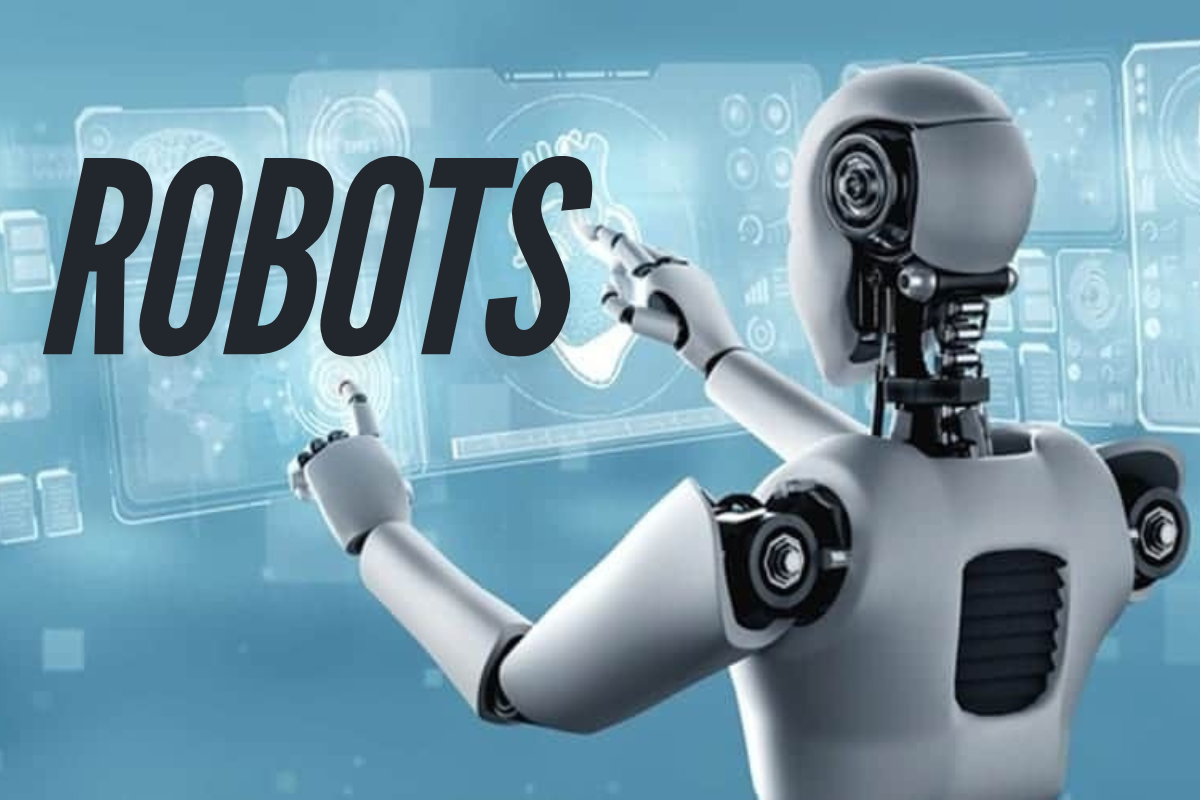In this era of unparalleled technical progress, robots have become a key component of innovation. They are changing how we work, live, and engage with technology, from streamlining repetitive activities to transforming intricate industrial processes. Their function in contemporary civilization has become essential due to advancements in robotics engineering, machine learning, and artificial intelligence.
What Are Robots and How Do They Work?
Robots are autonomous devices that can complete tasks with little assistance from humans. They imitate human behavior and decision-making processes by using sensors, actuators, and CPUs. A robot’s functionality largely depends on its programming, the type of task it’s designed for, and its level of autonomy.
Advanced robots can learn, adapt, and make judgments thanks to the integration of AI systems. AI and robotics have worked together to create intelligent devices that can mimic human behavior while also increasing accuracy and efficiency.
See Also: Caveduck AI: Revolutionizing the Future of Artificial Intelligence
The Evolution of Robotics Technology
Early Mechanical Inventions
Robotics’ origins can be traced back to ancient Greece, where the field was founded on crude mechanical devices known as automata. Despite their simplicity, these early inventions showed how fascinated humans were with using technology to simulate reality.
Industrial Revolution and Automation
Industrial robots like the Unimate, which automated monotonous activities, transformed production in the 20th century. These robots paved the way for widespread industrial automation and greatly increased productivity.
Modern Robotics and AI Integration
Robots are more intelligent and powerful than ever today. Robots that can comprehend natural language, identify patterns, and communicate with people naturally have been made possible by AI integration. The possibilities are endless, ranging from Boston Dynamics’ nimble robots to surgical helpers in the medical field.
Applications of Robots in Modern Life
Healthcare Innovations
Robots are becoming indispensable in the medical field, helping with rehabilitation, carrying out delicate surgeries, and even delivering prescription drugs in hospitals. Robotic surgical devices like the Da Vinci robot shorten patients’ recuperation times by enabling precise and minimally invasive operations.
Industrial Automation
Industries including electronics, food processing, and automobile manufacturing are dominated by robots. By managing jobs like welding, assembly, and quality control, they improve productivity and lower human error.
Service and Hospitality
Robots that serve food, greet guests in hotels, and clean floors in shopping centers and airports are revolutionizing customer service. Humanoid robots created to enhance user experiences were first introduced by businesses such as SoftBank Robotics.
Exploration and Research
In situations like deep-sea exploration or space missions, where human survival is impossible, robots are essential. Perseverance and other NASA Mars rovers are prime examples of how robots may collect data and lead to scientific breakthroughs.
The Role of AI in Robots
Robots can now think, learn, and adapt thanks to artificial intelligence, which has completely changed the field. Tasks requiring complex problem-solving and real-time decision-making are well-suited for AI-powered robots. For instance, autonomous vehicles rely on AI to navigate traffic safely, while warehouse robots use machine learning to optimize logistics.
Examples of AI-Powered Robots
- Sophia the Humanoid Robot: With her natural speech, Sophia marks a significant advancement in human-robot interaction.
- Autonomous Drones: Armed with artificial intelligence, drones can carry out duties like agricultural monitoring and surveillance.
The Future of Robots in Society
Smart Homes and Daily Life
Robots will play a key role in smart homes by helping with elder care, security, and household tasks. An increasingly automated lifestyle is already being ushered in by gadgets like AI assistants and robotic vacuum cleaners.
Education and Training
By serving as interactive learning aids and tutors, robots are revolutionizing education. Pepper and other educational robots encourage kids to study STEM subjects, which makes learning more engaging and approachable.
Ethics and Challenges
The increasing intelligence of robots raises ethical questions. It is necessary to handle issues like decision-making autonomy, privacy violations, and employment displacement. It’s critical to strike a balance between innovation and societal impact.
Bridging Technology and Humanity
The introduction of robots into our daily lives marks a significant transition to a technologically sophisticated civilization. Robots represent the pinnacle of human creativity since they automate repetitive chores, increase production, and solve problems that humans cannot.
FAQs
What are the main types of robots?
There are several types of robots, including industrial, service, humanoid and autonomous robots. Each type is designed for specific applications, from manufacturing to personal assistance.
How do robots impact the economy?
Robots increase economic productivity through labor cost reduction, task automation, and mistake reduction. They do, however, also provide difficulties, such as job displacement, which calls for workforce reskilling.
Can robots replace humans entirely?
Despite their superior automation and efficiency, robots are unlikely to completely replace humans since they lack moral judgment, creativity, and emotional intelligence.
Are robots safe to use in everyday life?
Future robots will evolve to become more intelligent, autonomous, and human-like, expanding their capabilities in industries like space exploration, healthcare, and transportation.
What is the role of robotics in education?
By using interactive tools and projects to teach students programming, engineering, and problem-solving techniques, robotics improves education.
How will robots evolve in the future?
Experts anticipate that future robots will become more intelligent, autonomous, and human-like, enhancing their capabilities in industries like space exploration, healthcare, and transportation.
Conclusion
Robots are more than just devices; they are evidence of human ingenuity and productivity. It continue to open up new opportunities in a variety of industries by bridging the gap between technology and human needs. As we move forward, embracing the potential of robotics while addressing its challenges will shape a brighter, more inclusive future.




